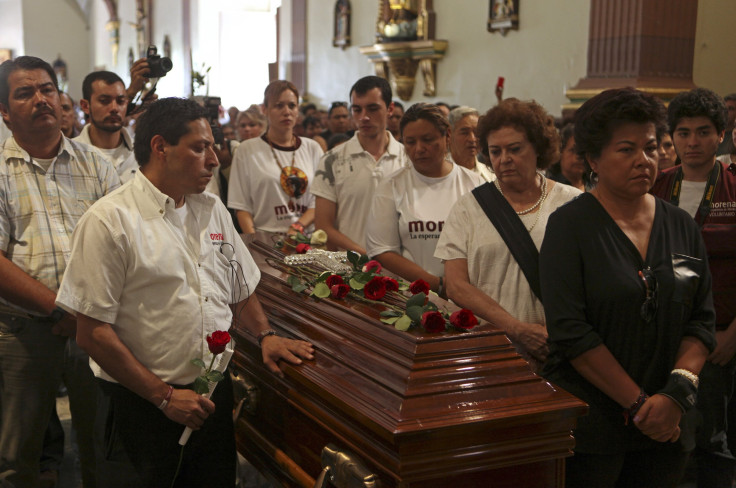Mexican Officials Reassure Public Amid Pre-Election Assassinations

The weeks leading up to Mexico’s June 7 regional elections have been a violent affair, with a slew of murders of candidates in some regions. The federal government assured the public it was providing security for candidates facing violence, while attempting to play down the security threat.
Interior Minister Miguel Angel Osorio Chong, speaking at a press conference Tuesday, said the government had a strategic plan to guarantee security for candidates in areas where homicides and drug-related violence are rampant, including the states of Jalisco, Guerrero and Tamaulipas. “We hope [the plan] will deliver results and the peace we are asking for,” he said. Twenty candidates so far have asked for government protection and will receive it, he said.
But while Osorio Chong expressed sorrow at the recent string of murders, he asserted they were “isolated cases.”
“Our country is not in flames, our country is not burning,” he said. “We have isolated cases that we profoundly lament, and we are working so that it does not happen.” The federal government would be providing protection for the candidates until June 8, a day after the regional elections, he added.
Three Mexican electoral candidates were killed in May alone. This week, authorities in the state of Michoacán began investigating 23 police officers for their possible involvement in the assassination of mayoral candidate Enrique Hernandez Salcedo, who was shot last Thursday in a drive-by attack. Hernandez was reportedly a leader of a group of “autodefensas,” vigilantes that have cropped up in Michoacán in recent years to battle drug gangs in the wake of police and military inability to curb the violence there.
Another politician, Héctor López Cruz, who was running for a municipal council seat in the state of Tabasco, was shot 16 times in his home last week, according to local reports. And Ulises Fabian Quiroz, a mayoral candidate in the state of Guerrero, was kidnapped and killed by an armed group earlier this month. Guerrero has been a flashpoint of protest as the site where 43 students disappeared last September, allegedly at the hands of police working with organized crime groups.
Other candidates have been killed this year in the run-up to the June 7 vote. Aidé Nava, a woman who was running for mayor in a small town in Guerrero, was found decapitated in March. Authorities found a threatening note, signed with the name of a local criminal group, Los Rojos, lying across her body. “This is what will happen to all the f---ing politicians who do not want to get in line,” the note read, according to local reports. Another mayoral candidate from Oaxaca state, Carlos Martinez Villavicencio, died in February at the hands of unidentified gunmen.
In Guerrero, families and supporters of the 43 missing students are promoting a boycott of the June 7 election, saying politicians there still have deep ties to organized crime.
© Copyright IBTimes 2024. All rights reserved.






















